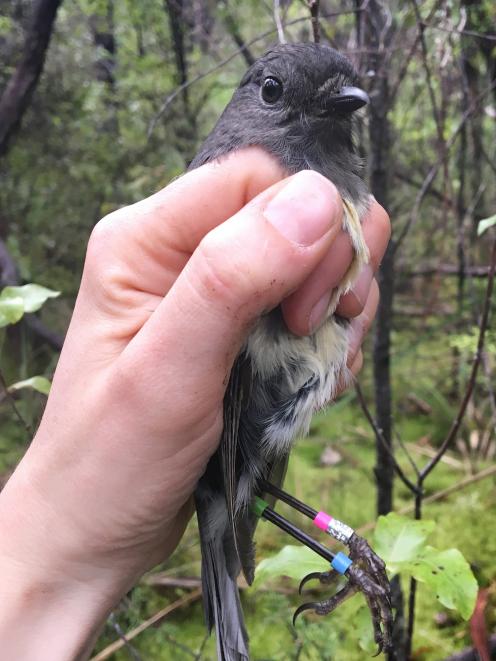
Department of anatomy research fellow Helen Taylor is investigating whether low genetic diversity and increased inbreeding leads to poor sperm quality in birds.
She is covering six locations at the top of the South Island in six weeks, taking samples from the robins.
Dr Taylor said she had already gone to Canaan Downs Forest and Adele Island, and was at present on Nukuwaiata Island, in Pelorus Sound.
Her next destinations were Motuara and Allports Islands in Queen Charlotte Sound, before the tour ended in Kaikoura.
The robins were extremely inquisitive and often approached people walking in the forest.
"Unfortunately, this curiosity is one of the things that makes them vulnerable to introduced mammals," she said.
Her last project, the Great Hihi Sperm Race, went viral, with 537 wagers placed from punters around the world on which male hihi (stitchbird) had the fastest sperm.
It raised more than $10,000 for the Hihi Recovery Group.
The blood samples and semen samples she had collected from the hihi and robin populations would be used to compare genetic diversity.
"We know that in mammals, insects and even plants, inbreeding leads to poor male fertility, but no-one has really looked at this issue in birds, so that's what we're doing."
Between 120 and 180 robins would be used in the study, and between 20 and 30 would be collected from each site.
After the field work was complete her team would begin lab work, including extracting DNA from blood samples.
"I'd hope to have all the results sorted in the first half of 2019."
